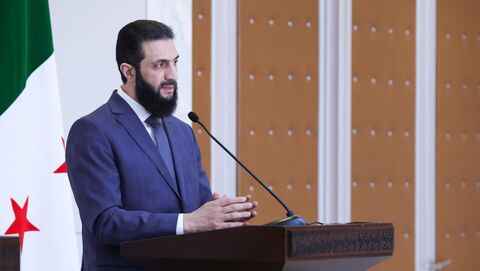He emphasized that the fall of the dictatorship marked the end of the revolution and that it was time to shift from a revolutionary to a state-oriented perspective.
Within two years of the Assad regime’s overthrow, 14 million Syrians who had been displaced are expected to return to their homeland, according to Ahmed al Sharaa, the head of Syria’s new government.
In an interview with YouTube content creator and documentary director Joe HaTTab, who is located in Dubai, Al Sharaa emphasized that Syrians who were compelled to leave their country are already returning after the fall of the 61-year-old Baath dictatorship in December.
“I have no doubt that in two years, 14 million Syrians will return to their homeland. There will only be about 1 to 1.5 million left (abroad),” he stated.
The overthrown government was criticized by Al Sharaa for utilizing official institutions to repress and control the populace, setting up organizations to accomplish so, and using methods including torture and murder.
He described the dedication of his government to justice as a cornerstone of Syria’s progress and restoration.
He stated, “If the state is weak, the citizens of that country cannot be strong,” emphasizing the necessity of short-, medium-, and long-term strategies for legislative, executive, and public institutions as well as other sectors during this process.
He added that while solving society’s present problems will require time, it is possible with persistent planning and public awareness campaigns.
According to Al Sharaa, the revolution helped the Syrian people overcome their hopelessness.
“Everywhere, Syrians now raise their heads high. We’ve altered the path of history.
“Victory without retaliation”
“There is social consensus in Syria,” he said, highlighting the peace across all societal divisions. This will allow people to live together in love for the first time in Syria.
He emphasized that the fall of the dictatorship marked the end of the revolution and that it was time to shift from a revolutionary to a state-oriented perspective.
Referring to the new administration’s objective as “victory without vengeance,” he backed efforts at reconciliation and a policy of amnesty for anybody who changed their allegiance after the dictatorship fell.
However, Al Sharaa made exceptions, stating that amnesty would not be given to individuals who had participated in torture, barrel bombings, or massacres, like those that took place at Sednaya Prison in the capital Damascus.






